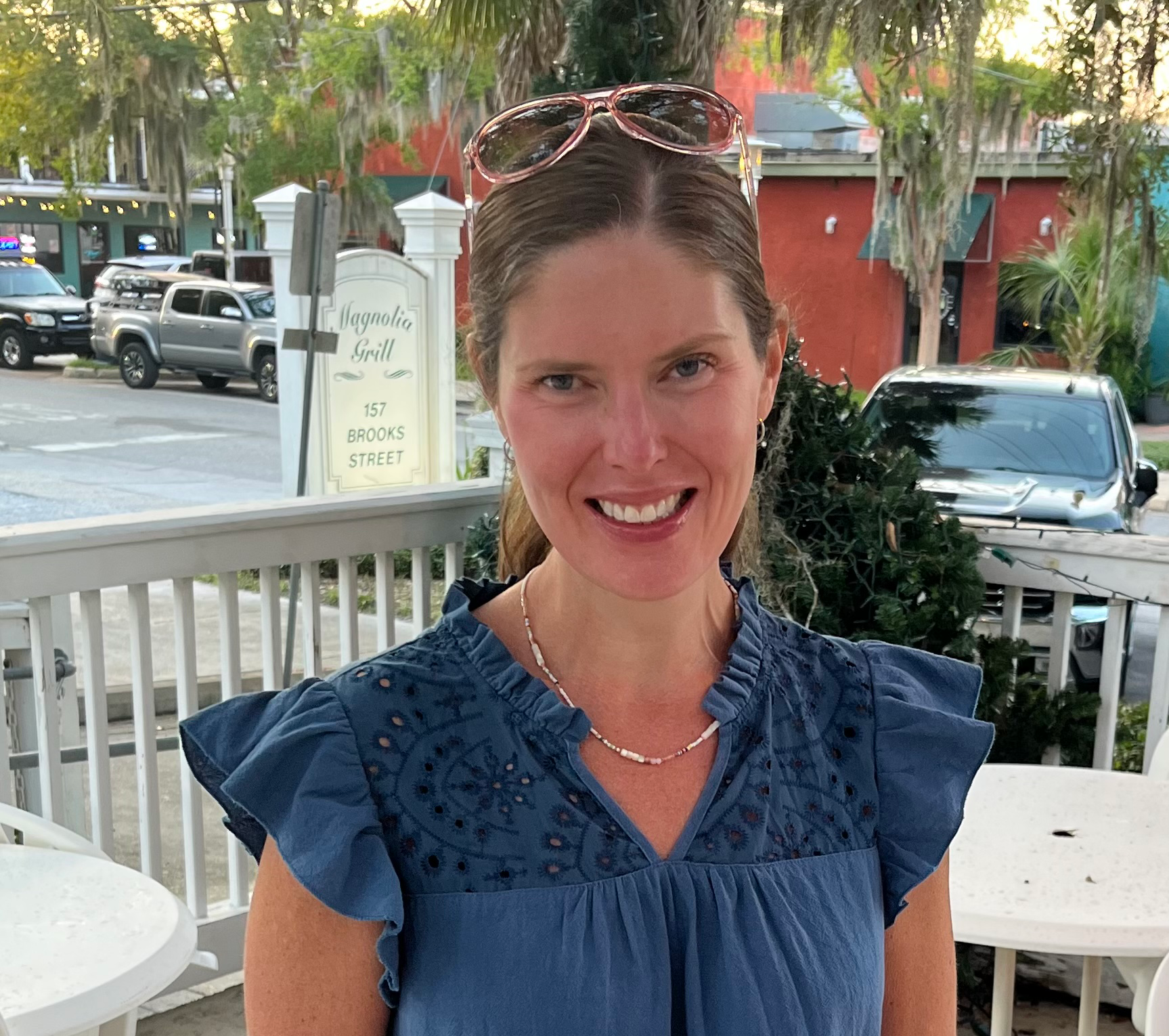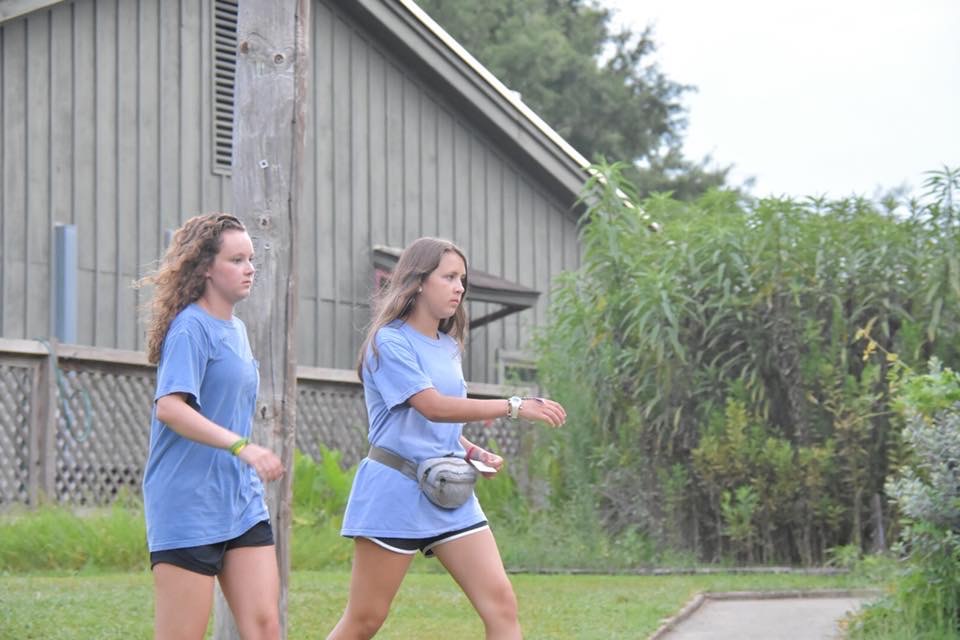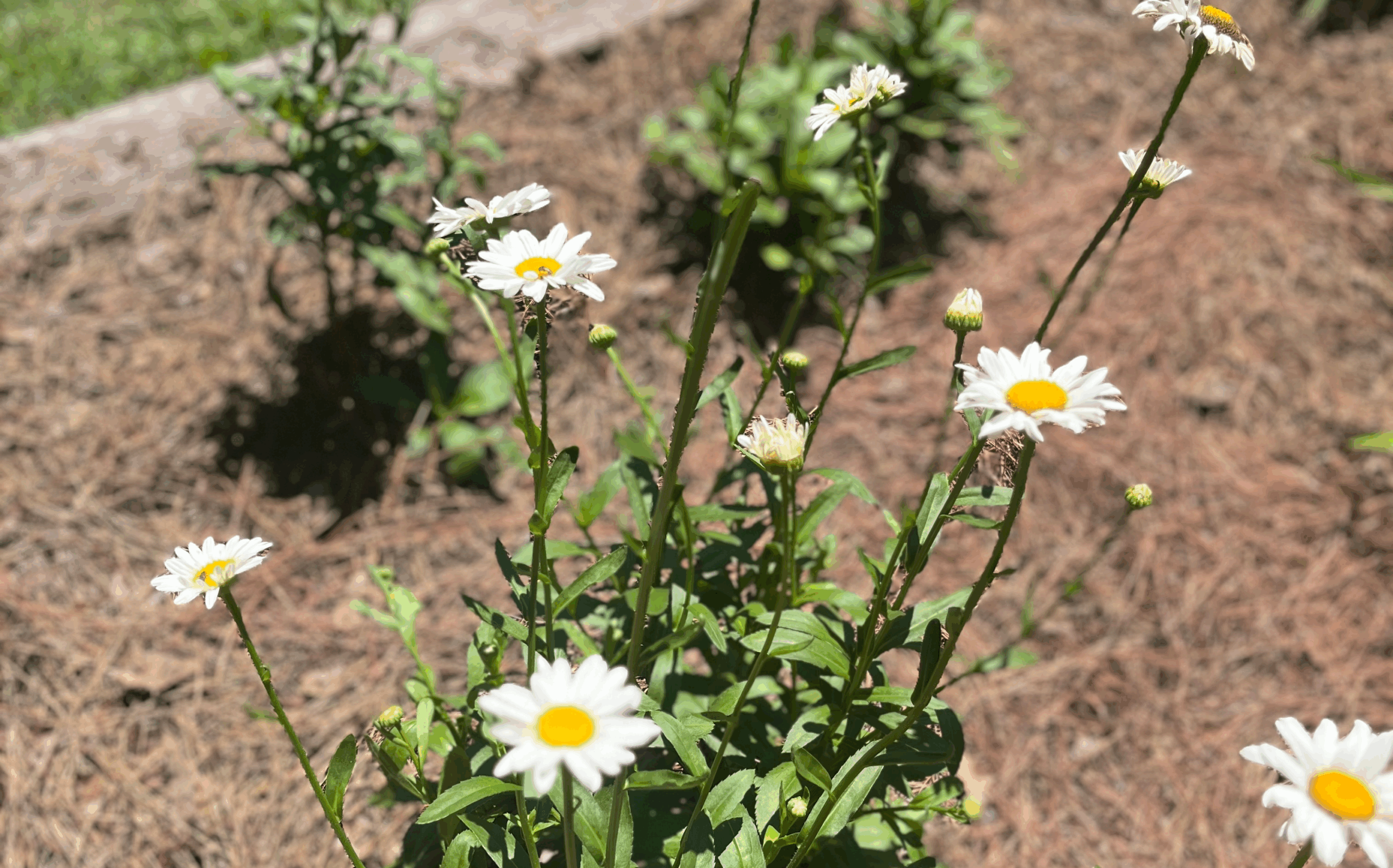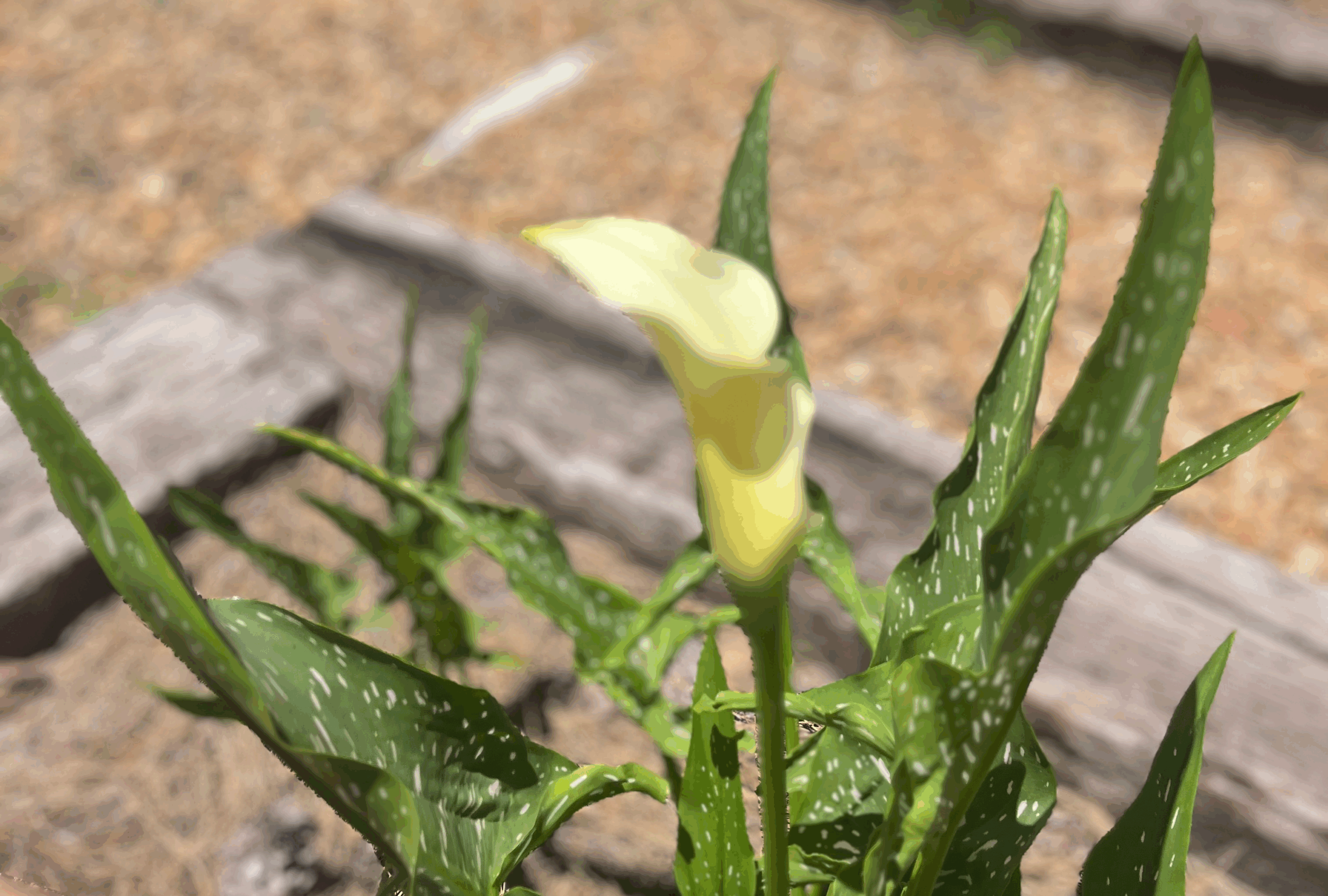 When Jill Hammack McLeod was a kid, she’d always wanted to go to summer camp. Her family was Methodist, but her mom happened to hear about Camp Bratton-Green from a friend. As soon as young Jill arrived at Rose Hill Lake, she was hooked.
When Jill Hammack McLeod was a kid, she’d always wanted to go to summer camp. Her family was Methodist, but her mom happened to hear about Camp Bratton-Green from a friend. As soon as young Jill arrived at Rose Hill Lake, she was hooked.
“Even with 100 kids running around, it’s quiet, it’s just very peaceful,” she says. “And it’s really pretty.”
She didn’t miss another summer as a camper, and once she grew up she found herself wishing she could get back to that special place. The opportunity came when she and her husband, Todd, started attending St. Alexis, Jackson. There, they met the Rev. Chuck Culpepper, who became a very important figure in their lives. One of the couple’s two children is even named for him.
Culpepper, a longtime camp director, was in need of a camp nurse for his 5th and 6th grade camp. It didn’t take much convincing on his part.
“I thought it was great—I get to go back to camp! I was like, this is my in,” says McLeod.
During her downtime from nursing that first year, she noticed another opportunity to provide some healing to the place—a neglected area of camp between the administration building and dining hall.
“It was an ugly part of camp,” she says. “It was overgrown gravel pathways. There were tarps over some of the flower beds that were dry-rotting in the sun, others were just overcome with weeds. There was one little bed that had some day lilies in it, but they were so choked out they didn’t bloom, nobody knew those weren’t weeds. There were some irises in one bed that had multiplied so much that they couldn’t really bloom.”
 She spent the better part of three days clearing, tilling, and planting. She collected pine straw from around camp and transplanted flowers and plants from her own yard and her mother’s. Her resourcefulness and hard work made the transformation a beautiful—and economical—project.
She spent the better part of three days clearing, tilling, and planting. She collected pine straw from around camp and transplanted flowers and plants from her own yard and her mother’s. Her resourcefulness and hard work made the transformation a beautiful—and economical—project.
“It cost me $1.64 to do all that,” she says. “I got a three pack of half-dead tomato plants that they basically gave me for free. And I bought a two pack of zucchini because I just decided we should put some vegetables in there.”
Campers became interested in what McLeod was doing. They asked her questions about the plants in the garden and learned how to identify weeds. Staff members took notice as well, happy to see a space that had been mostly ignored transformed into yet another place of beauty on the campus.
She got to know other staffers and campers, especially the most injury-prone among the group who paid her visits at the nurse’s station. She came back to staff each year, even staffing multiple sessions some summers, and continued to serve after Culpepper died in 2019, a loss that impacted the entire camp community deeply. At that “middler” camp session—now directed by Jason Woodcock, Leahbeth Turpin, and Rev. Carrie Duncan—she and a group of other adult staffers have become known as the “Middler Moms.” They’ve all become some of her most trusted friends.
 McLeod was determined to keep the garden in good shape and has been its custodian ever since. She lives about 20 minutes from Bratton-Green and makes a trip every two or three weeks to tend the plants around the property, sometimes accompanied by her husband and two children. She transitioned from contract work to full-time nursing after COVID, so she can’t attend as many camp sessions as she’d like. The gardening trips serve as peaceful retreats.
McLeod was determined to keep the garden in good shape and has been its custodian ever since. She lives about 20 minutes from Bratton-Green and makes a trip every two or three weeks to tend the plants around the property, sometimes accompanied by her husband and two children. She transitioned from contract work to full-time nursing after COVID, so she can’t attend as many camp sessions as she’d like. The gardening trips serve as peaceful retreats.
“I’d do every session if I could,” she says. “In my own selfish way, the garden is my chance to go out there. It’s not a chore. I mean, I’m going to do work, but I’m just thinking, ‘oh good, I’ve got to go to camp,’ you know?”
McLeod even keeps up with the schedule during the year and makes special trips to ensure the beds look their best before group visits and weekend events. Cathy Davis, Co-director of Gray Center, notices the hard work and is grateful for McLeod’s visits.
“Jill never asks for anything,” says Davis. “She just comes out as she can and turns that area into something beautiful.”
New plants get added to the beds at Bratton-Green from time to time. Whatever gets planted, however, McLeod reserves plenty of room for one particular flower that holds special significance.
“There are a lot of daisies out there,” she says. “That was Chuck’s flower.”
